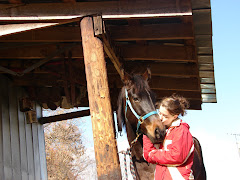In Ollie Taylors story chapter it brought up a great point about opportunities to learn. It says “grouping at all instructional levels is that students in low ability groups are exposed to substantially less material and to lower quality instruction than are students in middle or high ability groups.” This holds kids back in an enormous way. The low ability level students are given less information so through out there schooling they are always behind! There is no catching up, because they were never even exposed to some material. A student can only retain something they are taught. If a student never gets to experience all the lessons or it is dumbed down, in a 3rd grade science class how will they do in 4th grade science. I will tell you, not well! I have heard in one of my classes about students who don’t necessarily go to the low ability level classes but are in the high ability classes they just receive extra assistance. It’s called bridging or something like that. They also do this instead of holding some children back; they give extra assistance during summer or on weekends so that the student can catch up or learn new material. I think this is a great thing. This shows the students that with a little help and extra effort they can achieve the same amount of knowledge as all the other kids. I believe this gives a student more of belongingness to school and classes. I know if I was in a group that every one knew was lower level I feel ashamed and honestly I wouldn’t try just as an excuse to be in there. So I think this gives the students reason and willingness to try and achieve in school.
Although on the other hand I definitely can see the other side of the situation about the fact that if we include everyone it makes the advanced students not able to reach their full potential. And for this I say that including all students in learning, all the same material, in the same way is extremely beneficial for a student’s social, emotional, psychological, and knowledgeable wellbeing. Just as the low ability students are able to receive extra help on the side I think that a high ability student should be involved in groups or clubs such as math or debate team or even tutoring. I think this will give the higher ability students the challenge and benefits they need to achieve to their highest potential.
In my classroom I hope I give each student the same opportunities and apply a broad enough learning style so that all abilities are able to accomplish and learn to the best of their ability. If their were low and or high ability students on the complete opposite end in my class I hope I have the time and drive to offer such activities or help sessions different days of the week to help both groups accomplish the material in a challenging yet beneficial way. Maybe provide an extra low ability tutoring type session one or two days a week. While on the other days or days offering to start an extra club that will involve students to higher level think and really challenge their minds.
Wednesday, February 20, 2008
Wednesday, February 13, 2008
What is Social Class?
“When class resentments surface, those in a position of power encourage a criticism aimed downward-at the poor- increasingly the scapegoats for people’s economic frustrations.” I think it is important to be aware of different social classes, and be aware of how you act around them. Especially in the education industry, it is important to look at everyone the same no matter race, gender, or social class. This is definitely a problem I have seen in a classroom. I was a 2’s teacher at a higher end daycare for 4 years. And there would be certain children that we were not allowed to call out as in trouble, because their parents contribute a lot of money to the daycare because they are very well to do. While it is okay to point out and tell another lower class child that they did something wrong. I found this completely absurd! As seeing this in action I never want this in my classroom. I want a fair advantage to everyone no matter the social background.
I found it kind of depressing in Zandy’s thought that even today it is very hard to move up in a social class. She mentions that “there is some mobility between classes and it is possible to be born in one class and acquire great wealth later in life (but not likely).” The way that life and the world is evolving it is hard to believe we still can’t find a good way for hard working people to climb in ranks. Although I do think it is possibly to better your life but to completely jump classes is almost impossible with out hitting the lottery or some sort of crazy luck. So it is important to apply different teaching methods to meet the needs of all learners and to treat and expect the same from everyone, regardless of anything physical or background. Zander says it best when she states “our knowledge is a very powerful ‘sword’ and our decisions will affect other people’s lives, and that we need to be careful in how we make our decisions.” If you expect the same from all students they will be more willing to give you more in return.
Another quick point I want to bring up is from Allison’s chapter she mentions that at one point in her life, age 13, she wanted to run away and start all over with nothing from her previous life. I find that horribly sad. I want my children in the classroom to feel like they can at least accomplish and feel proud of their work while in school. Although we really don’t have a lot of effect outside school, we can make them feel comfortable and accepted while in school. They are with us for most of the day anyways. That why I think being aware of the way we say and do things towards people needs to be watched, because some students are more sensitive than others, and some come from backgrounds we cant imagine so it is important to be aware of our attitudes and actions in side the classroom and be aware of students actions as well.
I found it kind of depressing in Zandy’s thought that even today it is very hard to move up in a social class. She mentions that “there is some mobility between classes and it is possible to be born in one class and acquire great wealth later in life (but not likely).” The way that life and the world is evolving it is hard to believe we still can’t find a good way for hard working people to climb in ranks. Although I do think it is possibly to better your life but to completely jump classes is almost impossible with out hitting the lottery or some sort of crazy luck. So it is important to apply different teaching methods to meet the needs of all learners and to treat and expect the same from everyone, regardless of anything physical or background. Zander says it best when she states “our knowledge is a very powerful ‘sword’ and our decisions will affect other people’s lives, and that we need to be careful in how we make our decisions.” If you expect the same from all students they will be more willing to give you more in return.
Another quick point I want to bring up is from Allison’s chapter she mentions that at one point in her life, age 13, she wanted to run away and start all over with nothing from her previous life. I find that horribly sad. I want my children in the classroom to feel like they can at least accomplish and feel proud of their work while in school. Although we really don’t have a lot of effect outside school, we can make them feel comfortable and accepted while in school. They are with us for most of the day anyways. That why I think being aware of the way we say and do things towards people needs to be watched, because some students are more sensitive than others, and some come from backgrounds we cant imagine so it is important to be aware of our attitudes and actions in side the classroom and be aware of students actions as well.
Tuesday, February 5, 2008
What does schooling teach besides the overt curriculum?
McCarthy states “there must be an optimal level of obedience and cooperation in a reasonable society, but obedience, as any other virtue that is carried to an extreme, may become a vice.” And then goes on to give an example like the Nazi’s in Germany. I want children in my classroom to think for them selves. Yes I want them to be under control but to an extent. I want them to explore the boundaries of rules and in life. I don’t think you can get the most out of learning and life if you don’t see how far you can go, in any aspect. “The real problem is…an irrational fear of the mildly unusual, a pervasive attitude … are about to run amok and need constant control.” I have been in classrooms like this, and they are no fun. I think everyone has experienced a fearful teacher, so they go to the extreme on discipline. I know I will be afraid of my students becoming chaotic, but I hope I have enough direction so that I can keep the kids in a balanced, loose state of mind so that their minds are capable to focus and also have fun!
Shapiro made an excellent point about what we are teaching children in our schools, teachers are now more concerned on how to keep their jobs, so they teach to the test. It mentions only the most exceptional teachers “seek to make their classrooms places that are creative and expansive in their practice.” I hope I can be classified as one of the most exceptional teachers. I absolutely do not want to teach to the test, I want more from my students. I want them to be able to take knowledge and critically think, imagine, and use it in the real world! Although to keep your job, you need to have a huge emphasize on test I want to be able to teach the test in a critical thinking level. Using hands on, creative, real life, activities that will make the student truly understand and not just memorize. My ultimate goal as a teacher is to get my students wanting to come to school and being inquisitive to want to know more.
Shapiro made an excellent point about what we are teaching children in our schools, teachers are now more concerned on how to keep their jobs, so they teach to the test. It mentions only the most exceptional teachers “seek to make their classrooms places that are creative and expansive in their practice.” I hope I can be classified as one of the most exceptional teachers. I absolutely do not want to teach to the test, I want more from my students. I want them to be able to take knowledge and critically think, imagine, and use it in the real world! Although to keep your job, you need to have a huge emphasize on test I want to be able to teach the test in a critical thinking level. Using hands on, creative, real life, activities that will make the student truly understand and not just memorize. My ultimate goal as a teacher is to get my students wanting to come to school and being inquisitive to want to know more.
Subscribe to:
Posts (Atom)


